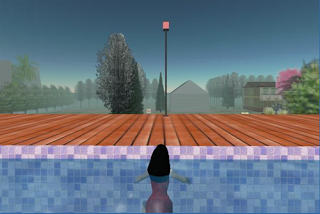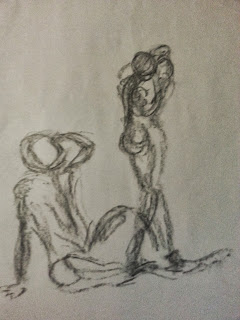AERA 2010
This time, it’s Denver, here I come! Air tickets are not booked yet. But I am planning to be there (at AERA’s Annual Convention) because I have a poster session to co-present with my peer, ML and I have fun stuff to do as a Junior Rep. I am very excited about the people I’ll be meeting up with. My first time too at an AERA conference. I hope to talk to some experts in my research area and attend some mentoring sessions. Just checking out the online program and I am all psyched about the great stuff I’m going to be learning.
One minor setback is I will have to miss a bit of the public events connected with my Imagining America Access project with Profs M, M and R. : ) Although this semester is jam-packed, I’m enjoying all the rich experiences.
The theme for this year’s convention is “Understanding Complex Ecologies in a Changing World”. It’s an appropriate concept to capture the interconnections among learners in multiple settings across time and space in an evolving world system.
This blurb on the conference site (http://aera.net/Default.aspx?id=7588)introduces the theme:
“Opportunities to learn within and across both formal and informal settings occur in the complex ecologies of peoples’ lives, not isolated in a single setting such as a school or family. These complex ecologies include people’s participation within and across multiple settings, from families to peer and intergenerational social networks, to schools and a variety of community organizations; and participation within and across these settings may be either physical or virtual. Our attempts to understand and influence such learning often try to strip away complexity for presumed efficiency.
Opportunities to participate in multiple settings and the norms for participation are influenced by larger cultural, political, and economic forces and institutions. Ubiquitous technologies empower and encourage all forms of communication and movement within and across all kinds of borders; transnational border crossing is increasingly common throughout the world. Different settings demand different norms for participation and, as a consequence, require that we recruit what and how we have learned in other settings of our lives as resources to help us make sense of new tasks and the new settings in which these tasks are carried out. There is also the question of how each new setting is organized to facilitate or constrain our recruitment of what and how we have learned in other settings. It is in this sense that learning entails cultural navigations.
The theme of AERA’s 2010 Annual Meeting…is intended to encourage submissions that address the conceptual, methodological, and practical challenges and opportunities inherent in understanding how and what people learn across time and space. We encourage submissions that move beyond a narrow focus on individual sites or on purely cognitive or psychosocial explanations, or on singular conceptions of identity. Such an ecological focus encourages education researchers to draw on interdisciplinary constructs and theories, complex research designs, and multiple methods of data analysis.”
Sounds complex alright!


